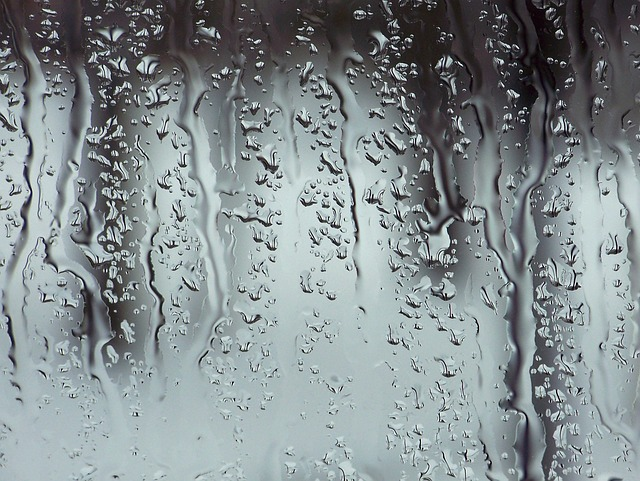
The rainy season, also known as the wet season, is one of the two major seasons in the Philippines. Farmers eagerly wait for rainfall this season to nourish their fields after the hot, dry season.
However, Filipinos living in low-lying areas fear it due to severe consequences, destroying their properties, especially during severe thunderstorms.
Wet Season in the Philippines
The rainy season in the Philippines officially occurs from June to November, though in most cases, monsoon breaks and heavy rains begin as early as May all through the “ber” months of September, October, and November in the Philippine area.
The rainy season is characterized by abundant rainfall due to several tropical cyclones and cool temperatures; contrary to the relatively high temperature that the dry season brings.
According to Philippine Atmospheric, Geophysical and Astronomical Services Administration (PAGASA), the average annual rainfall of the Philippines varies from 965 to 4,064 millimeters annually.
While the rainy season provides relief to the dry areas in the country, it also poses risks to the public (i.e., residents in some areas need to evacuate from their homes due to flash floods).
Others hate the wet season because it is the time of the year that they always get sick and their health, affected. Colds and cough leading to headache and fever, dengue, diarrhea, and waterborne diseases are prevalent during this time. With the high cost of hospitalization, some resort to their trusted home remedies.
A helpful reminder though, while it’s always important to consult a doctor for severe symptoms and pain, you can try several home remedies to alleviate common ailments and strengthen your immune system.
Home Remedies for Colds
During the rainy season, colds can become quite common as the change in weather, rain and increased moisture provide an environment conducive to the growth and spread of viruses. Children are the most susceptible to diseases when the climate drops.
While there are medicines for colds, many natural remedies and cure, as well as complementary health approaches can help alleviate symptoms and promote a faster recovery.
Stay Hydrated
Drinking plenty of fluids is vital to stay hydrated and thin mucus secretions, which can help relieve congestion. Go for warm liquids like herbal teas, clear broths like chicken soup, or warm water with lemon and honey to relieve a sore throat and cough.
More than relief, these liquid recommendations are full of nutrients.
Get Sufficient Rest
Rest is crucial to health to allow your body to heal and recover. Make sure to benefit from enough sleep and take breaks throughout the day to conserve energy and aid in health and healing.
Steam Inhalation
Inhaling steam can help relieve congestion and open the nasal passages. You can do this by leaning over a bowl of hot water, covering your head with a towel, and breathing in the steam. Adding a few drops of eucalyptus or peppermint oil to the water can further enhance the decongestant effect.
Gargle with Saltwater
Warm salt water can help soothe sore throat and reduce inflammation. Dissolve half a teaspoon of salt in a glass of warm water and gargle several times daily to alleviate discomfort. Research also shows that pounding garlic and mixing it with water can relieve common cold.
Herbal Remedies
Certain herbs have natural antiviral and immune-boosting props. Drinking herbal tea from ingredients like ginger, garlic, chamomile, echinacea, or elderberry can help alleviate the common cold symptoms and support the immune system.
Nasal Irrigation
A neti pot or saline nasal spray can help flush out nasal congestion and relieve sinus pressure. These methods can help remove excess mucus and reduce inflammation in the nasal passages.
Honey and Lemon
A mixture of warm water, lemon juice, garlic, and honey can relieve sore throat and cough symptoms. Lemon juice contains vitamin C, while honey has soothing properties that can help coat the throat and alleviate irritation.
Eating Healthy
Eating the right food especially during rainy season is certainly helpful. Children who are most vulnerable to diseases should be given food that are full of nutrients and liquids that are full of Vitamin C.
Maintain Good Hygiene
Practicing good hygiene habits can help prevent the spread of the common cold. Wash your hands frequently with soap and water before eating or touching your face. Avoid contact with individuals with a cold and cover your mouth and nose with tissue or elbow when coughing or sneezing.

Home remedies for Digestive Issues
Another problem during the rainy season is your overall gut health. According to studies, the damp condition provides a good host for various germs, bacteria and viruses. They can travel to the human body through contaminated food and can cause many gut-related diseases. Vomiting, nausea, chronic constipation, gastritis and gut sensitivity are the most complaints during wet season.
Drinking herbal tea
They have long been used to soothe digestive discomfort. Peppermint tea is known for its ability to relax the gastrointestinal tract muscles, alleviate bloating, and reduce abdominal pain associated with irritable bowel syndrome or IBS. Chamomile tea has anti-inflammatory properties and can help calm an irritated digestive system.
Probiotics
More studies point to adding probiotics into your daily routine can promote a healthy balance of gut bacteria, which research show is crucial for optimal digestion and alleviating IBS’s symptoms. Look for a high-quality probiotic supplement with live bacteria and incorporate probiotic-rich foods like yogurt, kefir, and kimchi into your diet.
Ginger
Ginger has been used for centuries to aid digestion and reduce inflammation. It can help relieve nausea, bloating, and abdominal discomfort. Consider drinking ginger tea, chewing on a small piece of fresh ginger, or incorporating it into your meals for its therapeutic health benefits alone.
Fiber-Rich Foods
Consuming adequate dietary fiber can help regulate bowel movements and ease constipation or diarrhea associated with IBS. Choose soluble fiber sources like oats, flaxseeds, chia seeds, and fruits like bananas and apples.
However, be mindful of your individual tolerance, as some people with IBS may need to adjust their fiber intake.
Stress Management
Stress and anxiety can exacerbate digestive symptoms. Activities like yoga, meditation, deep breathing exercises, or hobbies can help manage stress levels and positively impact your digestive health and safety.
Avoid Trigger Foods
While it varies for individuals, certain types of foods may lead to IBS symptoms. Common triggers include spicy foods, caffeine, carbonated drinks, fatty foods, and artificial sweeteners.
Pay attention to your body’s responses and consider eliminating or reducing these triggers from your diet.
Home remedies for diaper rash
Babies are also affected by various discomforts during rainy season. One of which is diaper rash which is common and can be easily treated. With the easy home remedies, mild cases can go away almost instantly.
Keep the affected area clean and dry
Proper hygiene is crucial to prevent and treat skin issues. Cleanse the area gently with lukewarm water and mild, fragrance-free soap. Pat the skin dry thoroughly, ensuring no moisture remains.
Air out the affected area
Allow the skin to breathe by exposing it to fresh air whenever possible. If dealing with diaper rash, consider giving your baby some diaper-free time indoors in a clean and safe environment. For fungal infections in other areas, wear loose-fitting clothing that allows air circulation.
Use natural remedies
Diaper rash cure
Apply a thin layer of organic coconut oil or aloe vera gel to soothe and protect the skin. These remedies possess antibacterial and anti-inflammatory properties that can aid in healing.
Fungal infections
Tea tree oil, known for its antifungal properties, can be diluted with a carrier oil (such as coconut or olive oil) and applied to the affected area. Tea tree oil should be used sparingly and avoided if you have sensitive skin.
Other natural options include apple cider vinegar, or a paste made from crushed garlic cloves, which have antifungal properties as well.
While home remedies are accessible, it is essential to consult a healthcare professional if the condition worsens or the pain persists. They can provide a proper diagnosis and recommend additional treatment options, if needed.

Check out our House and Lot for Sale Properties
Discover our house and lot for sale properties in the Philippines


